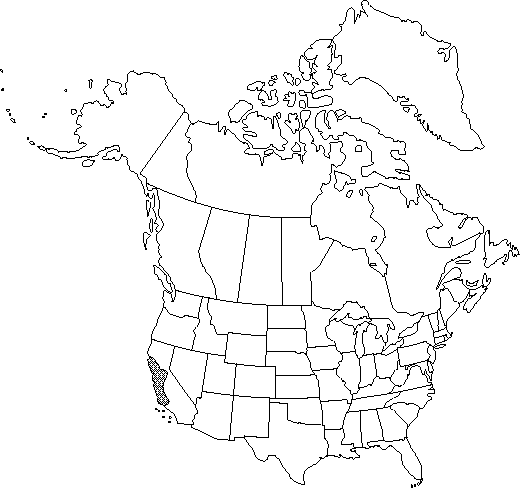Difference between revisions of "Aquilegia eximia"
J. Gén. Hort. 12: 13, plate 1188. 1857.
FNA>Volume Importer |
imported>Volume Importer |
||
| Line 56: | Line 56: | ||
|publication year=1857 | |publication year=1857 | ||
|special status=Endemic;Illustrated | |special status=Endemic;Illustrated | ||
| − | |source xml=https:// | + | |source xml=https://bibilujan@bitbucket.org/aafc-mbb/fna-data-curation.git/src/bb6b7e3a7de7d3b7888a1ad48c7fd8f5c722d8d6/coarse_grained_fna_xml/V3/V3_439.xml |
|genus=Aquilegia | |genus=Aquilegia | ||
|species=Aquilegia eximia | |species=Aquilegia eximia | ||
Revision as of 23:01, 27 May 2020
Stems 50-100 cm. Basal leaves 2-3×-ternately compound, 15-35 cm, much shorter than stems; leaflets green adaxially, to 10-48 mm, somewhat viscid; primary petiolules 21-90 mm (leaflets not crowded), glandular-pubescent. Flowers nodding; sepals perpendicular to floral axis, red, lance-ovate, 15-28 × 5-10 mm, apex narrowly acute or acuminate; petals: spurs red, straight, ± parallel, 18-32 mm, stout, abruptly narrowed near middle, mouth yellow, cut obliquely backward from insertion, blade thus absent; stamens 17-30 mm. Follicles 15-25 mm; beak 12-20 mm.
Phenology: Flowering spring–summer (May–Aug).
Habitat: Damp rocky places
Elevation: 0-2000 m
Discussion
Selected References
None.
Lower Taxa
None.

